Out of all the images captured inside Terminal 3 of Sydney Airport on March 22, 2009, it is a few seconds of footage that has seared itself into David Adney’s psyche, even now, almost a decade after he first saw it. Mick Hawi was among those on the rampage in Terminal 3.
It shows a woman visibly and uncontrollably shaking, not just her hands but her whole body, paramedics supporting her so she doesn’t collapse, an ordinary member of the public, one of about 50 standing around at check-in counters and computer terminals who had just witnessed a man, Anthony Zervas, the younger brother of Hells Angels member Peter Zervas, being cornered against a glass window and then, having fallen to the ground, being bludgeoned to death with a 12kg bollard during a brawl between 17 very large, very tattooed, and very angry members of the Comanchero and Hells Angels outlaw motorcycle gangs, both of whom had been warring over territory in Sydney’s south for months and, on that day, just happened to be flying from Melbourne to Sydney on the same Qantas flight.
Just try to imagine how traumatic it would be watching a person die in that way, to endure that level of animalism for a full 60 seconds in the middle of a crowded airport.
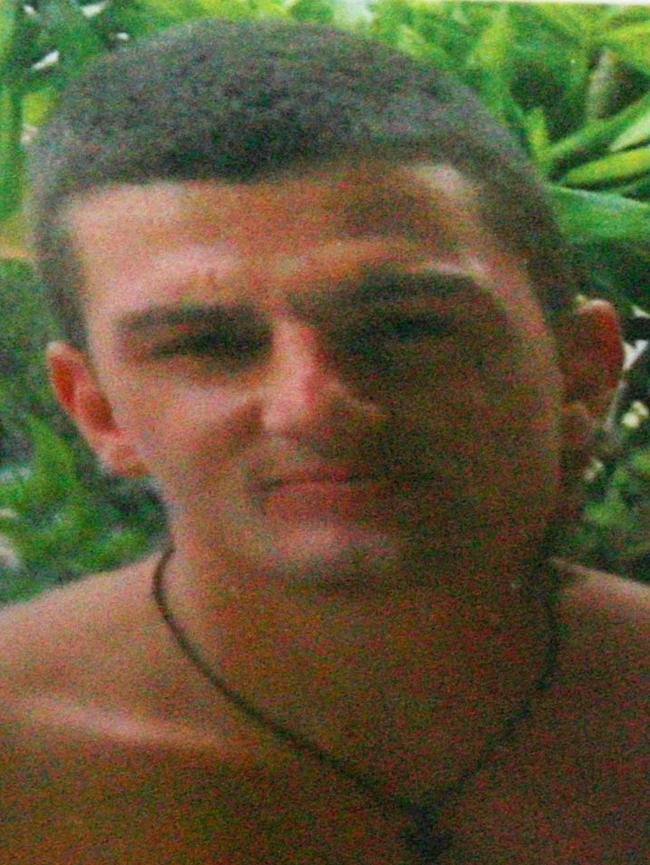
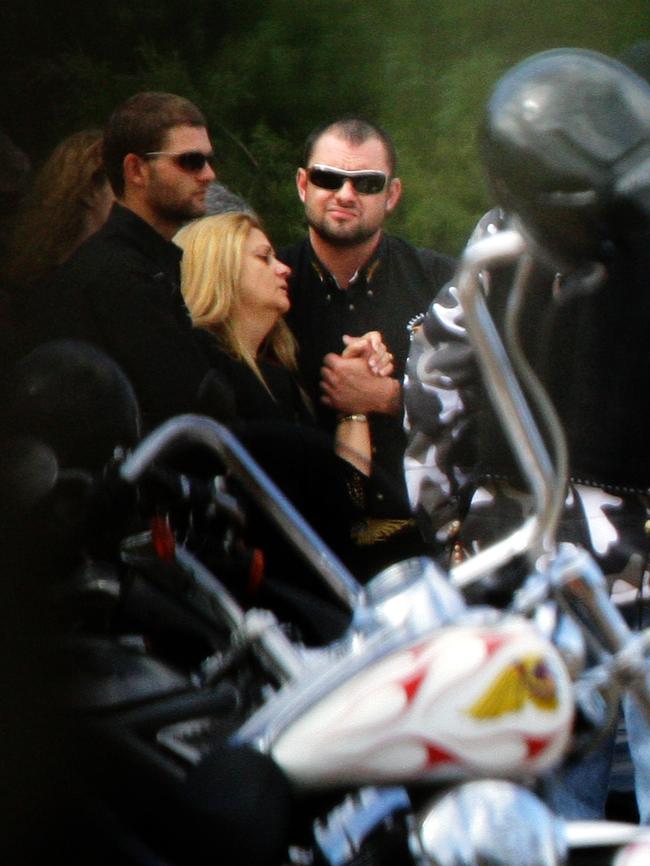
“They just didn’t care about clubbing a person in front of hundreds of people,” says Dave Adney. “Members of the public shouldn’t have to put up with that disgusting behaviour in their lives.”
The former president of the Comancheros motorcycle gang, Mahmoud “Mick” Hawi was imprisoned in 2012 for his role in the infamous brawl.
Within five days of that brawl, Police Commissioner Andrew Scipione announced the formation of Strike Force Raptor, a first-of-its-kind unit specialising in outlaw motorcycle gangs.
In the beginning it was propped up by a grab bag of riot police, licensing cops, detectives and highway patrol officers drawn from all over Sydney, but this would eventually whittle down to a core group of originals, some of whom, like Adney and Beeche and a handful of others, are still there.
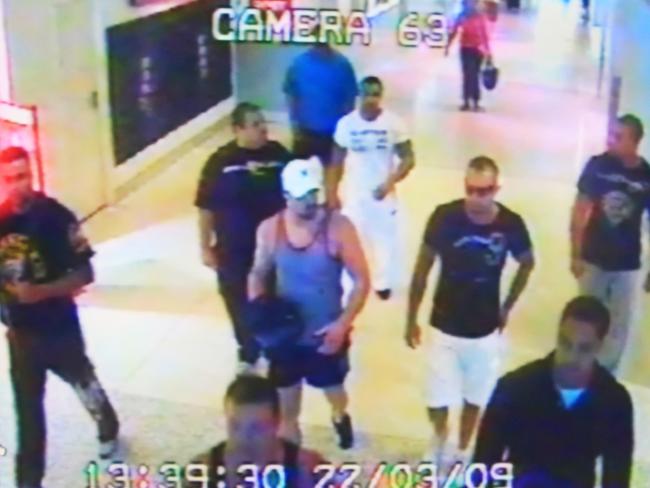
Resources were thrown at Raptor: brand new cars, computers, a big empty office in Parramatta with desks everywhere, the IT guys working feverishly to get everything up and running.
Within days, officers were mounting operations in gang territory across Sydney — in Kings Cross and Parramatta, Castle Hill and Cronulla. Their first arrest, Denis Karac, came from a tip-off. An associate of the Rebels, officers burst inside his apartment in Rockdale to find a pump-action shotgun and a pistol.
Two days later they pulled over a Hells Angel riding in full colours through Alexandria with a loaded handgun buried in his trousers. A shotgun and a drum of liquid, “Fantasy”, which the Hells Angels were moving in bulk from Melbourne to Sydney, was found in his apartment, an offence which, when combined with the gun charge, resulted in a seven-year prison term.
(Brief aside: the man in question, Christian Manu Birch, was only just out of jail and on his third month of parole for these offences when he was spotted by Raptor officers on that houseboat in Mildura, Victoria, a technical breach of his parole conditions.
So these same officers turned up at his house in Sydney two weeks later to arrest him, but Birch denied being onboard the houseboat or anywhere near Mildura at the time, sticking with this story and denying, denying, denying all the way back to the holding cells where he was finally shown a photograph taken by one of the officers which, yes, clearly showed Birch standing on the boat and hanging out socially with the Hells Angels and prompted him to shake his head in disbelief and, according to a Raptor officer present, say: “Fuck, you guys are good.”
[Postscript: Birch successfully argued at an appeal hearing a few weeks later that he’d only gone to Mildura to formally hand in his colours and part ways with the Hells Angels for good, a story accepted by the State Parole Authority, which released him.]
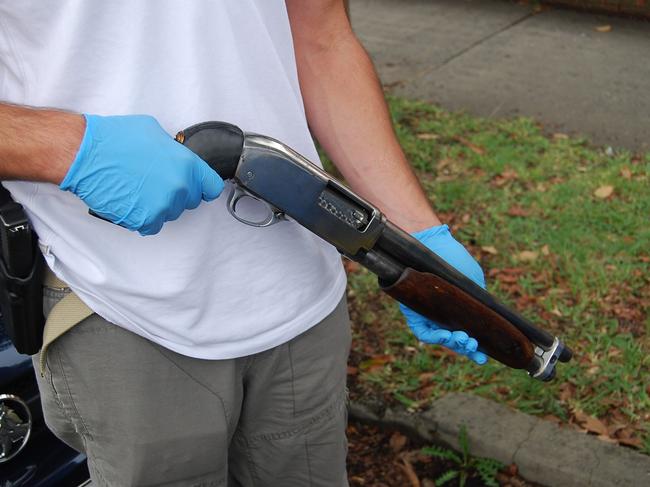
When I caught up with Birch he actually confirmed all this and seemed pretty easy-going about the whole run-in with Raptor.
“I said to the cop, ‘Mate, it’s a bit pedantic to pull a guy’s parole over a meeting’,” he said. “Then the bloke showed me photos [of the houseboat],” most of which, he added, looked fuzzy and unclear.
“But then he showed me one and said ‘there’s the money shot, Christian’. I had a laugh. They’ve got a job to do.”
It’s only been eight years since those initial arrests, but they might as well be from a bygone era in Sydney’s history, considering that pack-riding in full colours along the M4, or commandeering café tables in Parramatta, or menacing people in shopping centres, happens so rarely now.
Bikies aren’t stupid enough to keep sawn-off shotguns in their houses today, especially when they can be raided at short notice. But this was the environment Raptor emerged into after the airport brawl, a daily influx of crime.
In prized territories like Kings Cross, members of now-defunct gangs like Notorious were muscling into the area’s nightclubs and using any excuse — stray eye contact, a person standing too close — to start throwing punches.
“They were so over-empowered that if someone dared to look at them the wrong way, they felt they had the right to bash them,” says Darren Beeche, Raptor’s tactical leader.
In one case a man’s head was stomped outside the Dragonfly nightclub, his teeth scattering across the footpath. Another was coward-punched outside the Vegas Hotel where a member of Notorious, drunk and pacing back and forth outside the venue, had been refused entry.
“I don’t remember much,” the gang member said later to police in the holding cells, “but it sounds like something I would do.”
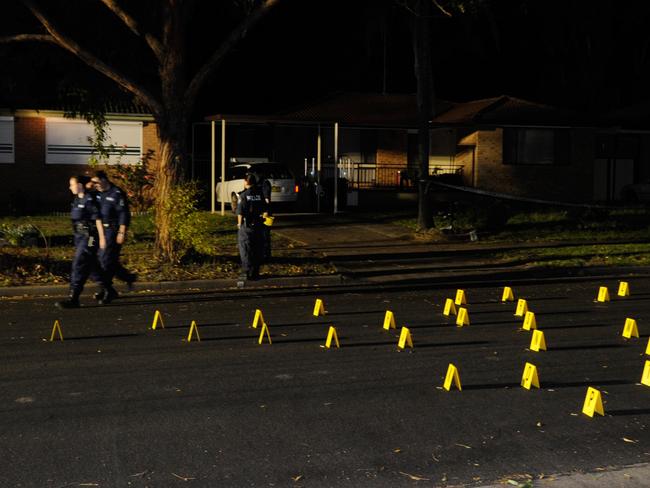
Local detectives struggled with these complex, time-consuming cases — the codes of silence that kept witnesses from coming forward; the terrified victims who retracted their statements; the nightclub licensees with gang affiliations; the security guards who cleaned up crime scenes, or who refused to hand over CCTV footage.
When these cases fell over in front of a magistrate it empowered the bikies and made the pursuit of justice against them seem pointless.
And it’s a cliché, but to solve the big problems you need to build momentum from the smaller ones, which is what David Adney set about doing with these cases.
Every weekend he’d call up the crime managers in Kings Cross or Parramatta or Castle Hill and ask about the bikie brawls and gang activity that occurred overnight, requesting to take them over, or work with the local cops, most of whom would usually pass on these cases because they were so damn difficult to solve.
“They didn’t want them, and we were happy to take them,” says Adney, who then gave the cases to his team leaders and made sure they ended in arrests, because every case at Raptor, big or small, is, according to Adney, packaged with the same scrupulous care and tying off of loose ends as a homicide investigation.
Some in the legal fraternity seem to agree. “The first thing most lawyers think when a brief is served is: ‘it is going to take some serious work to secure an acquittal’,” says Ljupka Subeska, who’s acted for members of the Rebels.
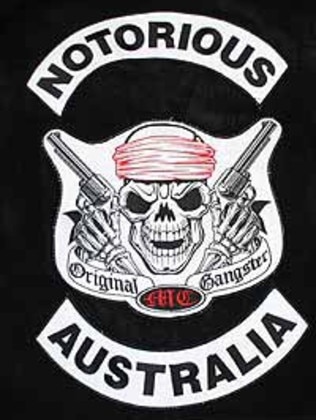
But there have been missteps. In 2015 a daytime operation outside the Fourth Reich’s Wollongong clubhouse created bad blood between police and the local community.
The bikies had opened their doors to raise money for a local shark patrol service, but civilians ended up on the receiving end of Raptor’s tactics.
Some were pulled over at the clubhouse’s entrance and fined for minor traffic breaches. They were also chided for tacitly supporting the gang, whose clubhouse is adorned with Nazi banners and swastikas.
“You’re supporting it,” an officer said to a woman, who insisted she was there to buy a t-shirt. “Get it through your thick head. That’s why you are here with your bonnet up beside the road, stupid.”
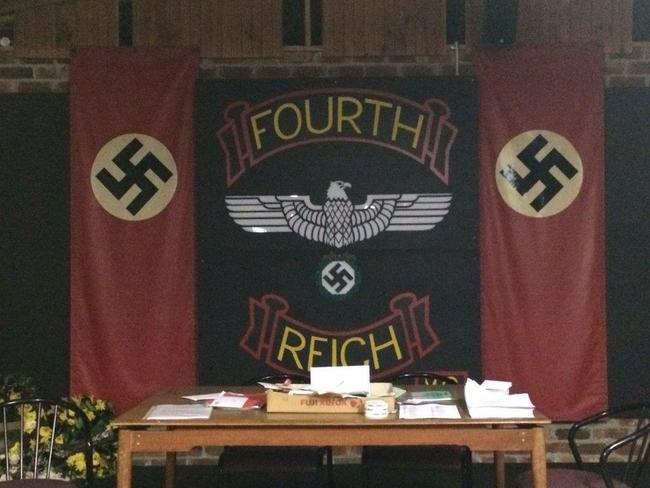
It’s unclear which officer made these comments – the operation was a joint effort between Raptor staff and local police – but the exchange was just ugly and heated and flew against Raptor’s whole mission statement of protecting people and seeking justice for victims of bikie-related crimes.
The bar-fight issue, for example, only got fixed because Raptor officers called back old witnesses who’d retracted their statements and promised them absolute safety.
They met with assault victims and convinced them to turn up to court, to put faith in Raptor’s processes. And the nightclub bosses who refused to hand over CCTV footage, or security firms that mopped up crime scenes, were hauled before tribunals and had their licences threatened.
In the background, Raptor was also deploying novel strategies tailor-made for the bikies. Each weekend officers would door-knock gang members at their homes in Auburn or Wentworthville and instruct them to stay out of the city.
It was a crude method of stemming the violence, but it worked — undercover officers would sit off their houses and tail any cars leaving the scene.
“You’re not thinking about going into the Cross, are you?” an officer would ask if a car was pulled over. And if it seemed the bikies were snubbing the directions then the usual consequences of traffic tickets, or house searches, or attention and inconvenience would follow, all of which would create a ripple effect within the gangs and make chapter bosses angry.
Minions would get smacked around for bringing heat on the club. And behaviour would slowly change as everyone put a little more effort into avoiding police attention. “Peer-group pressure kicked-in,” says Adney.
The other unexpected benefit of these simple interactions was that it tended to expose bikie methodology. One night officers raided the southwestern Sydney home of Comanchero member Ricky Perceval, finding a half-kilogram stash of ice and seven firearms.
The guns were all legally registered, meaning Perceval couldn’t be charged, but the find was still a breakthrough for Raptor and illuminated some important avenues of inquiry: like how did a fully-patched member of the Comanchero get a firearms licence?
And had any of these seven guns been used in a crime? And how many other bikies were legally holding weapons in the same way?
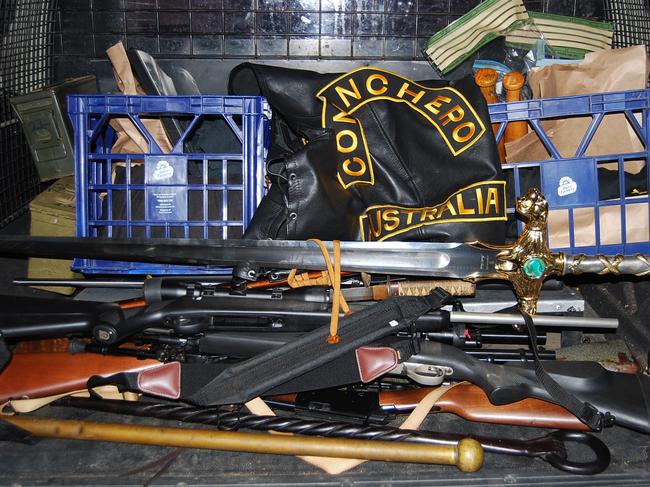
The answer was 59, all fully-fledged gang members or their associates. Raptor figured this out by crosschecking its bikie database with the list of gun owners held by the NSW Firearms Registry.
It’s an old trick of the underworld: become a member of a gun club or hang out at the shooting range and then apply for a pistol licence to get fast, easy and, above all, legal access to a weapon.
The only catch to this scam is that, under the law, the guns can be inspected at any time for safety compliance, giving Raptor the perfect cover to roll up on gang members and search their houses without a warrant.
The results were immediate: guns hidden in sock drawers, guns hidden under beds, an AK47 concealed behind a gun safe.
A couple of big-name players ended up in prison using this strategy, like Bernard Sward, the Rebels Sutherland chapter president, a middle-aged man who ran a Jim’s Mowing franchise.
One day, Raptor officers turned up on his doorstep to inspect four pistols in his gun safe. The safe had gone missing, Sward said, stolen during a recent visit to family interstate.
The truth, however, was uncovered through phone taps: he’d sold the guns to pay off a drug debt.
This mining of big data paid off and hurt the bikies in subtle ways. Raptor officers trawled through Centrelink spreadsheets and Tax Office records, both of which revealed which gang members were unlawfully claiming Newstart Allowances, or Disability Support Pensions, or who hadn’t been lodging tax returns.
More than 120 Rebels were caught up in this dredging process, leading to millions of dollars being recovered for the federal Government.
And word got around about these techniques. Victorian Police, experiencing similar problems with bikies, started calling Raptor officers for advice.
The Queenslanders did the same. Soon a backchannel trade of ideas took shape, one that started with emails and conference calls and eventually morphed into high-level government meetings with 20-plus people sitting at the table, officials from the Australian Federal Police, the Australian Crime and Intelligence Commission, the Department of Human Services, and others.
If this sounds a little dry or unremarkable, it shouldn’t. A quirk of Australia’s federal system is that, until a few years ago, police didn’t share intelligence or communicate in the free-flowing ways they do now.
Relations were frosty and competitive, which was great for criminals. But today it’s different, and the bikies hold the dubious honour of having helped break down these silos, the results of this newfound cooperation working against them in ironic and punishing ways.
Like during one meeting in 2012 the South Australians casually mentioned their plan to execute a couple of ‘Firearm Prohibition Orders’ (FPOs) that weekend; raids that would let the cops search houses and cars without a warrant. Dave Adney, hearing this, bolted to attention — these were powers that didn’t exist in NSW at the time.
But by November 2013, thanks to a couple of swift changes to the state’s legislation, Raptor had them too, plus another secret weapon.
If you’ve seen the movie Men in Black, there’s a scene where Will Smith’s character is introduced to the MIB’s arsenal of ultra-high-tech weaponry ahead of his first assignment, the weapons being all sleek and beautiful and given obscure and future-y sounding names like ‘Series 4 De-Atomizer’, which, to the utter disappointment of Smith’s character, he doesn’t end up getting to use.
Instead, he’s given a pint-sized and harmless-looking pistol called ‘Noisy Cricket’, which ends up being way more powerful than any gun in the MIBs arsenal and totally devastating when let loose a couple of scenes later.
Consorting laws, introduced in February 2012, are Raptor’s ‘Noisy Cricket’.
On paper they sound anodyne – a person who repeatedly defies an official warning not to hang out with criminals can be jailed for up to three years or receive a $16,000 fine – but their effect has been seismic.
“Straight anti-gang,” is how Adney describes them. Practical effects include no more clubhouse meetings, no more riding in public, no more hanging out in the same room. Even chatting on Facebook or Whatsapp can be considered a ‘consorting’ offence.
“That was one of the biggest breakthroughs,” says Detective Superintendent Deb Wallace, Commander of the NSW Gangs Squad, the overarching entity that houses Strike Force Raptor.
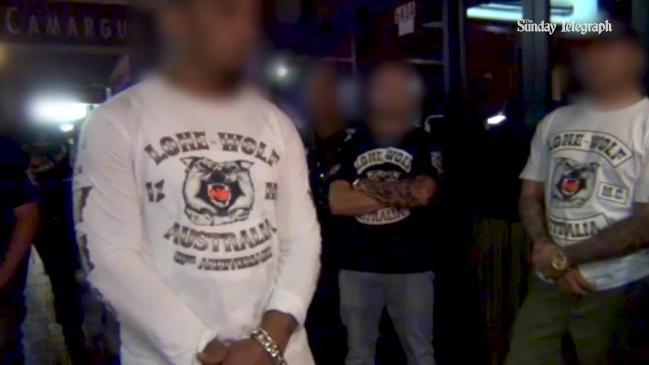
The laws essentially vaporized the bikie landscape overnight. In the days after they took effect, Raptor officers went door-to-door handing out hundreds of legally-binding consorting warnings, the first step in laying a criminal charge.
The bikies, apathetic and confused, scrunched them up without realising their significance. “Am I being arrested or what?” they said.
But soon they twigged, then panicked, joining forces as a cooperative and mounting a PR campaign to try win over the public, telling everyone at rallies and press conferences that the laws would be abused and directed at ordinary civilians.
Alex Vella, the Rebels’ National President, led this charge by opening up his gang’s Bringelly headquarters to the media and taking all questions. He disputed claims his club was full of criminals, or a gang. There were some bad eggs, he conceded, but they were in the minority.
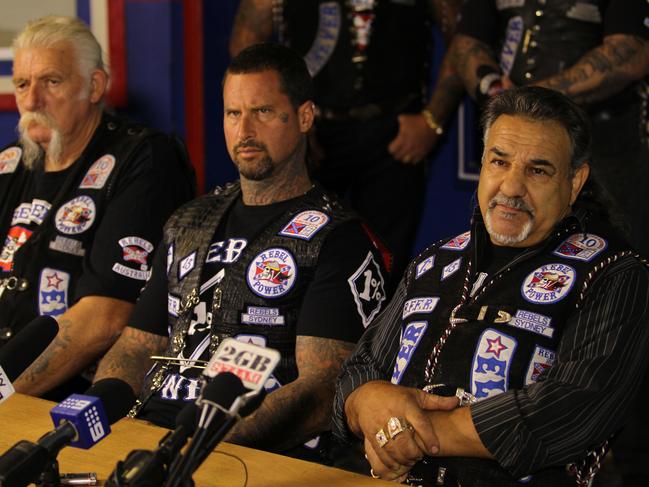
One of the first people charged with ‘consorting’ was Nomads president Sleiman ‘Simon’ Tajjour, a first cousin to the Ibrahim brothers.
He appealed his case all the way to the High Court, arguing the laws infringed on peoples’ basic rights to associate. For two years they were put on ice as everyone waited, unsure what would happen, but then in November 2014, to the huge relief of organised crime detectives everywhere, the High Court dismissed Tajjour’s case in a unanimous verdict.
The laws, the court said, were legal.
Since then roughly 64 people have been charged with consorting offences, about 80 per cent of which have been gang members or their associates.
The remainder have been criminals, but not gangsters. Still, concerns linger. Last year the NSW Ombudsman published a legal review citing cases where consorting warnings had been issued to homeless people and Indigenous Australians, none of whom were gang affiliated.
Stephen Blanks, President of the NSW Council for Civil Liberties, said cases like these could “turn communities off police” in the longer term, and he still believes the laws are an overreach, despite their effectiveness.
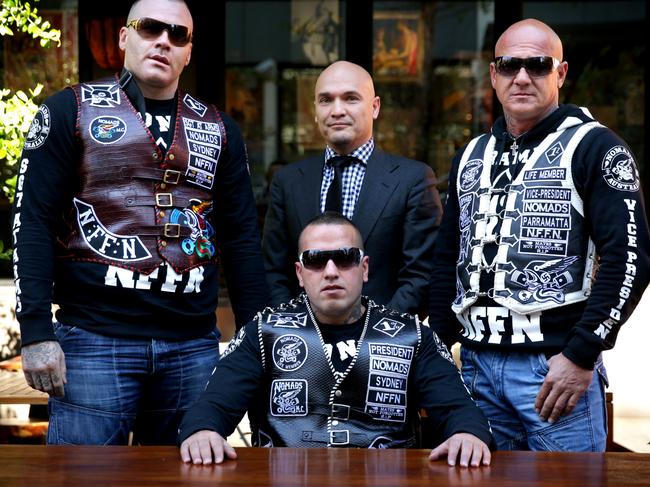
A reasonable question to ask then is whether this infringement on civil liberties, or the prediction that it would happen, and still could, was even worth it?
The answer, like anything controversial, depends on who you ask. Mr Blanks says no, but Raptor officers, as you might expect, say yes.
“We haven’t had a ‘National Run’ in NSW since,” says Wallace, who sits on that 20-person roundtable of cops and government headkickers, today a formalised council known as the ‘Morpheus National Taskforce’, which has grown in recent years to include powerful new allies in its circle, like the Australian Border Force.
Its officials are cleared to do things police aren’t, like cancel a bikie’s visa, or have them deported offshore, a pretty severe measure that comes down to a ‘character test’.
The criteria for deportation is largely intelligence based, and the intelligence, when it’s used, is confidential. And if you fail the test, you’re out.
As of February there have been 87 visa cancellations across the country. Another 100 bikies are on the figurative radar. Some are in prison and haven’t received the paperwork yet.
There’s no trial or warning process. It just happens: Raptor officers turn up on the target’s doorstep and take them away to Sydney’s Villawood Detention Centre, or Christmas Island, where an appeal process usually plays out but often fails, meaning they’ll never see their house or street ever again.
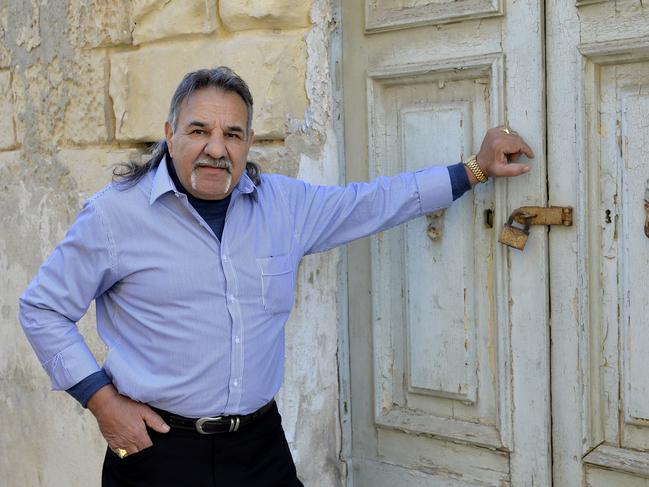
Some of the bigger scalps claimed through this process include Alex Vella, the Rebels President, and Shane ‘Kiwi’ Martin, the Rebels southern region boss, both of whom were among the initial tranche of deportation targets.
A Change.org petition, set up on Martin’s behalf, said his exile was baseless, that he’d been running a transport company with 10 employees, and that he hadn’t been convicted of a serious crime in 12 years. “There is no evidence Mr Martin has been involved in any criminal activity within the club,” the petition said.
Vella’s visa, by contrast, was cancelled while he was on holiday in Malta. His was a test case, the first approved by the Federal Government. The application took seven months to complete, according to an official familiar with the process.
Today the same process has been shortened to just a few weeks. Its more recent targets have included Pasilika Naufahu, the former ‘Commander’ of the Comanchero, who got into a bar fight within 24 hours of landing in New Zealand.
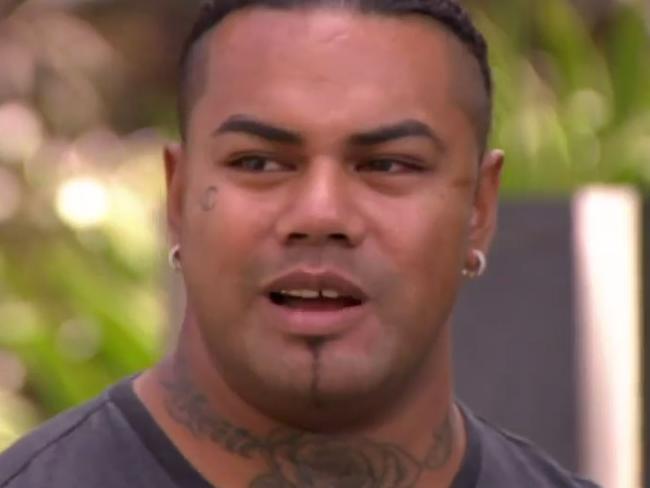
“I don’t want to be here,” the 28-year-old told a local television station following a court appearance. He departed for the Middle East soon after, a hideout and gathering point for several leading Comanchero figures, people like Mark Buddle, the gang’s former boss, who is thought to be laying low in the region.
A strong suspicion is that he and others continue to coordinate the gang’s drug shipments back to Australia, the region being a staging point for deal-cutting with the European market’s shadowy controllers.
In this way, the gang has kept itself ahead of law enforcement, outfoxing Raptor by moving its central leadership overseas.
A pending deportation being watched closely is that of Hassan ‘Sam’ Ibrahim, the original bikie disrupter, the former Kings Cross doorman who created a legion of young followers in his image.
A dual national, currently in prison, officials are waiting to see whether his appeals to stay in this country will be upheld by a court.
“It’s a hard line,” says Wallace of the deportations, sounding genuinely sympathetic. “But,” she adds, bringing it back on the bikies, “they are self-declaring as ‘one-per centers’.”

Add your comment to this story
To join the conversation, please log in. Don't have an account? Register
Join the conversation, you are commenting as Logout